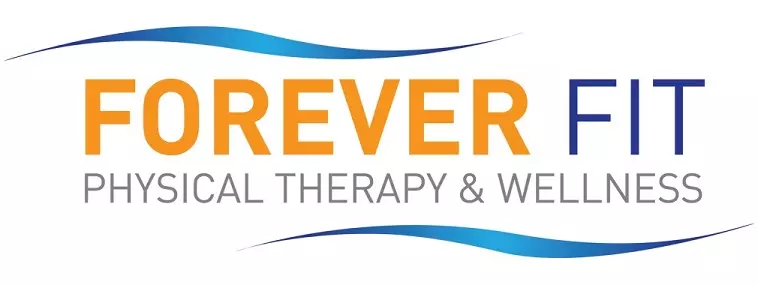In all the movements the human body is capable of, the ability to stretch your arms over your head is a simple yet profound movement. It’s a motion we often take for granted until we cannot perform it. When it becomes difficult to stretch your arm over your head, reaching for items on a high shelf, playing sports or even embracing a loved one becomes challenging. This limitation can cause you concern and limit your ability to perform daily activities. It’s essential to uncover the underlying issue behind your limited arm mobility. By understanding the cause of your limitation, you can begin to find practical solutions to help you regain your mobility.
Potential causes of your arm stiffness
If you are facing an inability to stretch your arm over your head entirely, your quality of life can begin to suffer. Several causes could be behind the limitation in your arm, including:
- Muscular tightness — One of the most common causes of limited arm mobility is muscular tightness. The shoulder and arm are made up of an intricate web of muscles. Muscles in the shoulder, like the pectoralis major, deltoids and triceps, can become tight. This tightness can be because of not stretching or improper posture and lead to a restriction in your range of motion.
- Frozen shoulder — Frozen shoulder, also known as adhesive capsulitis, is characterized by stiffness and pain in your shoulder joint. It is caused by the capsule surrounding your shoulder joint thickening and tightening. It restricts both active and passive range of motion in your shoulder. This limitation can make it challenging to raise your arm over your head. It can be triggered by injury, lack of use due to pain, or certain medical conditions.
- Rotator cuff injuries — The rotator cuff is a group of muscles responsible for stabilizing the shoulder joint. When the rotator cuff muscles or tendons are injured, it can lead to pain and limited mobility in your shoulder. Inflammation or tears in these structures can also hinder the ability to lift your arm. Rotator cuff injuries are often caused due to repetitive overhead motions, trauma, or degeneration due to aging. Approximately up to 4 million people in America experience a rotator cuff injury each year.
- Arthritis — Arthritis, especially osteoarthritis and rheumatoid arthritis, can cause inflammation and damage to your joints. This can limit the range of motion in your shoulder joint and make it difficult to raise your arms over your head comfortably. Osteoarthritis affects over 32.5 million adults in the U.S. Rheumatoid arthritis affects approximately 18 million people worldwide.
- Nerve impingement — When nerves are compressed or irritated, it is known as nerve impingement. This impingement can cause pain and weakness in the affected area. Conditions like cervical radiculopathy or thoracic outlet syndrome can lead to nerve impingement, restricting arm movement.
- Postural imbalances — Poor posture can lead you to experience muscle imbalances and tightness. This can affect the proper alignment of your shoulders. Rounded shoulders and a forward head posture can contribute to limited overhead mobility. This can be due to long hours of sitting hunched over electronic devices, leading to muscle imbalances and tightness.
If you are experiencing an inability to stretch your arm over your head, consulting with a health care professional is essential. Based on your diagnosis, they can recommend appropriate treatment, which may include physical therapy.
How can physical therapy help you get your arm mobility back
Physical therapy can be an incredibly beneficial treatment to help you regain the mobility in your arm. A physical therapist can do a thorough assessment of your condition and create a treatment plan designed to help you recover the ability to stretch your arm over your head comfortably. Treatment plans can include:
- Therapeutic exercises — Your physical therapist may design a regimen with specific stretching and strengthening exercises tailored to your condition. These exercises improve your flexibility, muscle strength and joint mobility. Particular stretches can gradually increase your range of motion in your arms.
- Manual therapy — Your physical therapist may use hands-on techniques to help mobilize your joints and soft tissue. Soft tissue mobilization is a manual therapy technique that uses various techniques to mobilize soft tissue, like muscles, tendons and ligaments. This can help release muscle tension and improve your flexibility. Joint mobilization is a manual therapy technique intended to help restricted joint mobility to return to normal movement. This is done by a physical therapist using gentle and precise forces to move the shoulder to help improve function.
- Dry needling — Dry needling is a physical therapy technique used by licensed physical therapists to help address muscle pain, tightness and limited mobility. Thin, sterile needles are inserted into specific spots called trigger points, which are tight knots within your muscles that can restrict your movement and cause pain. Dry needling can help relieve pain, improve muscle function and increase circulation, which can boost healing.
- Graston Technique® — The Graston Technique is a form of manual therapy that can be beneficial in helping to improve arm mobility. A certified physical therapist uses specialized stainless steel instruments to apply gentle pressure to detect and treat areas of soft tissue restriction. This can help break down scar tissue and fascial restrictions that may limit your range of motion.
Forever Fit Physical Therapy & Wellness can help you overcome your restricted arm mobility
If you are experiencing difficulty raising your arm over your head, Forever Fitness Physical Therapy & Wellness can help. Our licensed physical therapists are well trained and equipped to find the underlying issue causing your arm restriction. They will design a customized treatment plan to help alleviate any discomfort you are experiencing and help to improve your flexibility and mobility.
Contact our team today for more information or to schedule an initial appointment.

